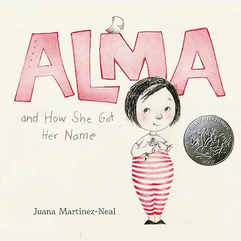Your Name Matters
- havingoursay

- Sep 3, 2024
- 2 min read

I didn’t love my name as a kid. I was a girl in a class full of Jennifers, Lisas and Traceys. No one in my class had a name like mine- and no one had skin like mine. I remember wanting to go by my middle name, but that was not an option.
I also remember finding a stocking at my grandparents' house one Christmas. The stocking read “Chanté” and I instantly preferred that spelling. I think I felt at least that spelling would make my name special and fancy. Then, my mom told me the story of how I was named. She told me my name has a French origin and about the song that inspired her selection. It was sung by Dinah Shore and when she heard it, my mom did some more research and decided Shontaye would be my name.
🎶Chantez, Chantez sing a little Paris song. Let’s all sing when any little thing goes wrong.”
My mother would sing the tune and frequently reminded me that my name means to sing and be happy. And with that I slowly (very slowly) started to embrace Shontaye- spelling and all.
I first read “The Name Jar” as an adult and it instantly reminded me of my love/ hate relationship with my name. The picture book tells a story of a Korean girl who is new to America and worries how her unusual name will be received at her new school. After being teased on the school bus, she decides not to reveal her Korean name in fear of facing more ridicule from her new American classmates.
I won’t spoil the ending, but it is a heartwarming reminder of how diversity in children's literature is needed. Not only does this children's book normalize a family's immigration to a new country, but it also normalizes differences in languages, foods, customs, and traditions.
To all of the kids (big and little) with "unusual"names, please correct them every time. Make them speak and spell your name correctly. Your name is your first gift from your family and carries cultural, ethnic, linguistic and familial significance. And if you are an adult working with kids, please say your students names correctly. If you are unsure how to speak their names, just ask!
Chronic mispronunciation can lead to feeling not accepted and undervalued and can be experienced as a racial microaggression. Name microaggressions can present as names being mispronounced, misspelled, misunderstood, misgendered, shortened or mocked. Honoring student names creates an equitable classroom where students feel safe, seen, and valued.
If you are not sure where to begin, start by sharing picture books that focus on the importance of names. This helps children to honor their names and embrace names they may not be familiar with. At its core, The Name Jar is a lesson in humanity and a reminder of how instead of trying to fit in, the best choice is always to just be you. The lessons in diversity and inclusion are an added bonus!












Their layering chains with gemstone accents like aquamarine and moonstone are incredible. Inspereza makes it easy to create chic layered looks that can be styled with both western and traditional outfits. The sagittarius birth stone add depth, sparkle, and subtle color, turning simple chains into stylish fashion essentials. Their jewellery elevates everyday accessorizing into something more artistic.
Motivation can fluctuate, but personal trainers provide constant encouragement. Their support and belief in personal trainer certification san diego a client’s potential can inspire perseverance, especially during difficult moments. This emotional reinforcement often makes the difference between giving up and pushing through.